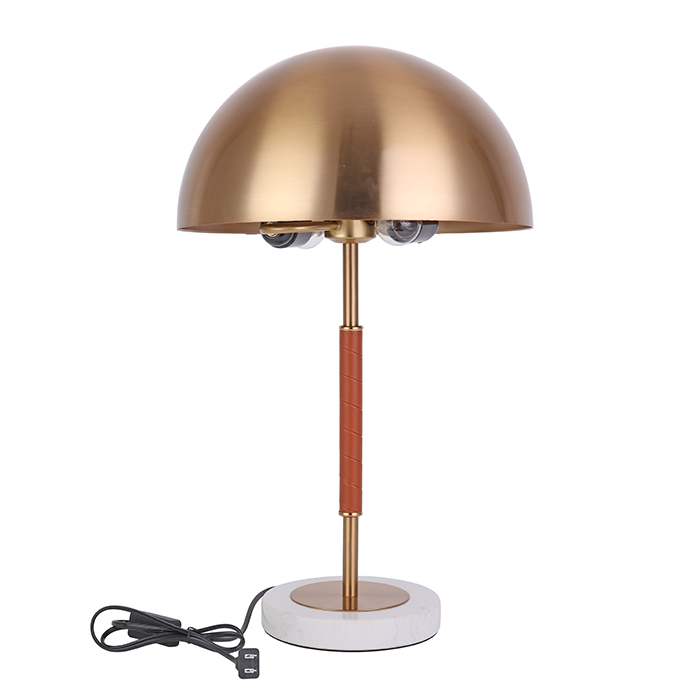Benefits of Retro Table Lamp
2024-06-17
A retro table lamp is a stylish and nostalgic lighting fixture that adds a touch of vintage charm to any space. These lamps are inspired by designs from past decades, typically ranging from the 1920s to the 1970s. Here’s an in-depth look at the features, styles, benefits, and considerations for choosing and using a retro table lamp:
Features:
1. Design and Aesthetics:
- Shapes and Styles: Often feature classic shapes such as mushroom, dome, or cone shades. Designs may include elements like fluted or ribbed glass, brass or chrome accents, and geometric patterns.
- Materials: Common materials include glass, metal, ceramic, and wood. Finishes can range from glossy and metallic to matte and textured.
- Colors: Retro lamps come in a variety of colors, including bold hues like orange, teal, and mustard, as well as more subdued tones like cream, brown, and black.
2. Lighting:
- Bulb Type: Compatible with various bulb types, including incandescent, LED, and CFL. Some designs may specifically complement Edison-style bulbs for an authentic vintage look.
- Light Output: Provides ambient lighting, often with a warm, inviting glow that enhances the retro aesthetic.
3. Size:
- Available in different sizes to fit various spaces, from small bedside tables to larger desk or living room settings.
4. Switch Types:
- Features traditional rotary switches, pull chains, or inline switches, adding to the vintage charm.
Styles:
1. Art Deco:
- Characterized by bold geometric shapes, chrome finishes, and luxurious materials like marble or mirrored glass. Often features symmetrical designs and intricate patterns.
2. Mid-Century Modern:
- Emphasizes clean lines, organic shapes, and minimalistic designs. Materials like teak, walnut, and molded plastics are common. Colors are often muted or nature-inspired.
3. Industrial:
- Inspired by factory and warehouse lighting, featuring exposed bulbs, metal cages, and raw finishes like aged brass or iron.
4. 1960s and 1970s:
- Known for bold colors, playful shapes, and the use of innovative materials like acrylic and plastic. Designs may include space-age influences and psychedelic patterns.
Benefits:
1. Aesthetic Appeal:
- Adds a unique and stylish focal point to any room, enhancing the overall décor with a nostalgic touch.
2. Versatility:
- Complements various interior design styles, including contemporary, eclectic, and traditional.
3. Warm Lighting:
- Creates a cozy and inviting atmosphere, perfect for relaxing or creating a specific mood.
4. Conversation Piece:
- Often serves as a conversation starter due to its distinctive and memorable design.
Considerations:
1. Placement:
- Ensure the lamp fits well in the intended space without overwhelming the area. Consider the height and shade diameter in relation to other furniture.
2. Lighting Needs:
- Choose a lamp that provides the right amount of light for its intended use, whether it’s for reading, working, or ambient lighting.
3. Electrical Compatibility:
- Check the lamp’s electrical requirements and ensure it’s compatible with your home’s voltage. Consider using energy-efficient bulbs to reduce power consumption.
4. Maintenance:
- Regularly dust and clean the lamp to maintain its appearance. Be mindful of delicate materials like glass or ceramic, which may require gentle cleaning methods.
5. Authenticity:
- Decide whether you want a true vintage piece or a modern reproduction. Authentic vintage lamps may have more character but could require more maintenance or refurbishment.
Conclusion:
A retro table lamp is a versatile and stylish addition to any room, offering both functional lighting and a nostalgic aesthetic. By carefully selecting a lamp that fits your space and meets your lighting needs, you can enjoy the charm and warmth that a retro table lamp brings to your home.



